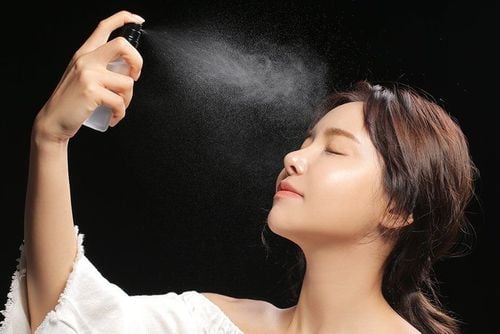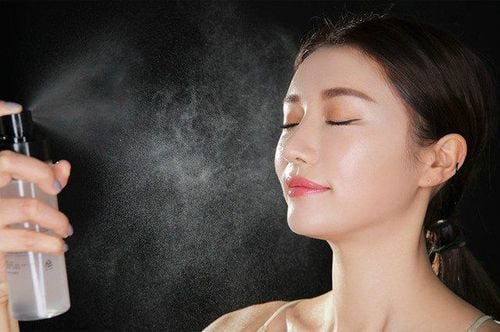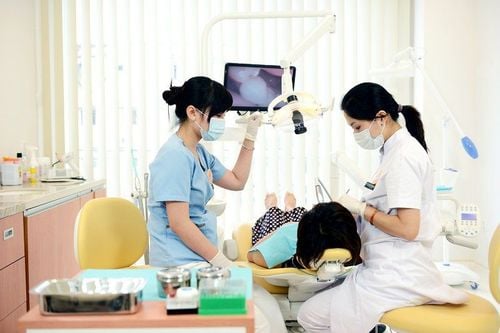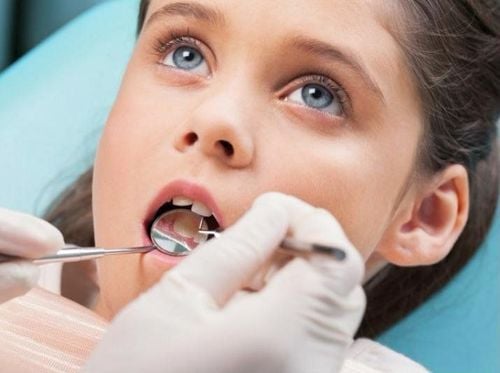This is an automatically translated article.
The skin is the largest organ in the body. Therefore, right from the moment of birth, parents need to take care to help maintain a healthy skin in the long run. The practice of child skin care needs to be started as early as possible.1. Find the right baby skin care products
There are many different soaps, creams, lotions, and skin care products on the market. However, choosing which type to clean as well as help properly care for children's skin is a concern of many parents.One of the important things to keep in mind when choosing to buy baby products is to avoid those that contain chemicals like sulfates and parabens. Finding a brand that targets sensitive skin in children is best. At the same time, always reading labels carefully will help parents choose a product line that is right for their children.
1.1 Keep children's skin clean Encourage children to wash their hands and teach them proper hand washing technique by washing hands under running water, scrubbing all surfaces of hands with soap, rinsing and drying thoroughly dual. Children should wash their hands several times a day, especially after using the bathroom and before eating.
Besides, children's whole body skin also needs to be washed in the regular bath or in the shower, depending on age, and the soap is gentle.
1.2 How to care for children's face Soap used in the bath can dry out the face, and the skin on the face is very sensitive. Therefore, children's facial care needs to start with finding a gentle yet effective cleanser that removes dirt and excess oil from the skin. Children often do not want to use adhesive or heavy-duty products. At this point, a mild soap will instead prevent redness and dryness.
Besides soap, it's also important to understand the right water temperature for baby facials. Although many parents believe that hot water is best for the pores, it is actually better to use warm water because hot water often breaks down the skin's natural oils and increases the risk of burns.
1.3 Don't forget to take care of your lips Many parents care so much about their child's skin that they forget another important part of the face is the lips. A child's lips can be prone to chapped or sunburned.
Therefore, parents should regularly apply lip balm to their children. Look for products that contain SPF to avoid further damage to the sensitive lip area in the sun. Also, if you notice your child has frequent cold sores around the lips, consult your doctor for additional treatment options.

Các mẹ thường tìm cách chăm sóc da mặt cho trẻ em bằng các sản phẩm dưỡng da phù hợp
Many parents don't realize that daily bathing is not necessary. Bathing three times a week may be enough to keep young skin clean without harming the skin. Also, it is best to avoid hot water. When children are old enough, they should be taught how to gently rub with a soft towel or sponge to help clean the skin.
During the summer months, chlorine or salt water can cause skin to dry out, especially if children spend a lot of time in the pool or at the beach. At this point, nourishing baby's skin by applying a gentle moisturizer and rinsing with salt or chlorine is key to maintaining healthy baby skin.
In addition, when the weather is dry, it is best to equip a humidifier in the house, which helps restore moisture in the atmosphere, indirectly stabilizing moisture on the skin. This will also help protect the skin.
1.5 Teach children the habit of drinking water Many children do not like to drink water. However, water is an essential part of the body.
Parents must always ensure that their children drink enough water during the day to maintain the necessary amount of water, especially in hot summer days, children exercise a lot and excrete a lot of sweat. When dehydration occurs, the skin can become very dry.
Two easy ways to get kids to drink more water is to widen their choices, like giving them other drinks besides water or milk, and adding natural flavors and colors to the water to increase attractions for children, like adding some fresh fruit or fruit syrup.
1.6 Apply sun protection for skin Exposure to the sun is just as dangerous for children as it is for adults. Protection from skin burns will help avoid future signs of aging and will prevent the development of skin cancer.
For active sun protection for the skin, it is necessary to apply sunscreen when taking children outdoors and reapply every few hours, even when it is cloudy outside. Be sure to use a child-friendly waterproof or anti-perspirant sunscreen. At the same time, it is necessary to choose a sunscreen with an SPF of at least 30 and have comprehensive sun protection properties, which will protect the skin from both UVA and UVB rays.
For maximum sun protection, it is best to apply sunscreen about 30 minutes before your child goes outdoors. Make sure to cover all areas of the child's body, including the hands, neck, ears, and shoulders. Dermatologists recommend reapplying sunscreen every two hours if your child is still active outdoors.
Babies younger than six months may not yet need sunscreen but should instead be shaded and protected from the sun. Encourage children to stay out of direct sunlight in the middle of the day, when the sun's rays are strongest and contain the most harmful ultraviolet rays.
1.7 Check for Rashes or Unusual Changes in Skin A child's skin can change quickly, so always monitor your child's skin and watch for dermatitis, rashes, or other changes in appearance. skin color or not.
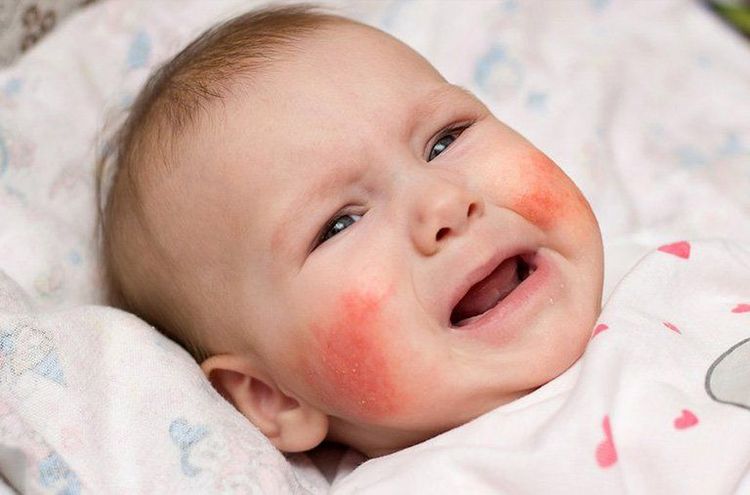
Phát hiện thay đổi về da của trẻ để có cách chăm sóc da cho trẻ em kịp thời
1.8 Skin Care for Teens During the early teen years, the appearance of acne becomes extremely common. Therefore, teenagers need to learn how to keep their skin clean and choose the right products that will help minimize acne.
Normal skin should be washed with mild soap every day. Meanwhile, dry skin needs to be cleansed and moisturized to maintain a healthy balance and oily skin should be cleaned with soap and water. Certain products can also be used to help neutralize excess oil on the skin.
When pimples form, it is important to never cause them to break. The bacteria can spread or can leave a scar. If acne is severe, products that contain benzoyl peroxide can help.
In short, the skin of a child has many different characteristics compared to the skin of an adult. Because the self-defense mechanisms common in skin have not yet formed, babies and children need special skin care to keep their skin healthy. At the same time, parents also need to remember that it is never too early to teach their children how to protect their skin and start giving them good habits to have a healthy skin for a lifetime. Taking the time to clean and protect your child's skin can help as their bodies continue to grow and change.
Please dial HOTLINE for more information or register for an appointment HERE. Download MyVinmec app to make appointments faster and to manage your bookings easily.




